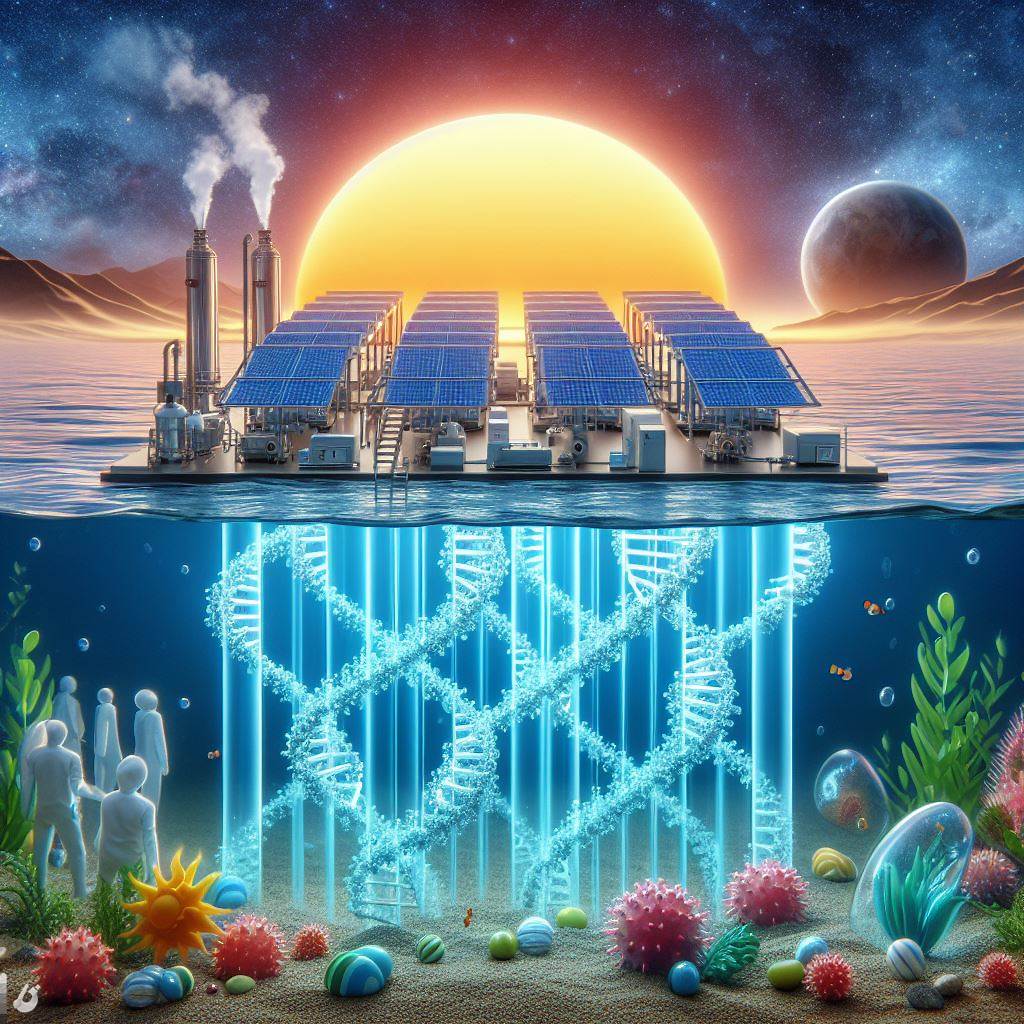
Researchers at the college of chemistry and materials science in China, led by Hanxue Liang, have developed a groundbreaking method for sustainable seawater desalination and the specific extraction of uranium using smart DNA hydrogels. The study, recently published in Science Advances, introduces a solar-powered evaporation system that not only provides a solution to freshwater scarcity but also extracts valuable minerals from natural seawater.
Solar-Powered Seawater Desalination: To address the growing challenges of freshwater scarcity, the team employed hydrogels – soft materials with high water content – to create a solar-powered evaporation system. This innovative approach allows the extraction of minerals such as uranium and lithium simultaneously during seawater desalination. According to Liang, "Human society can be developed sustainably through access to sufficient freshwater and energy."
DNA Hydrogel-Based Evaporation System: The research team utilized DNA hydrogels, incorporating graphene oxide (GO), to enhance the solar light-absorbing properties of the materials. These hydrogels exhibited ultrahigh water evaporation rates, forming a hydrophilic network that efficiently activated water molecules. The introduction of DNA structures improved evaporation efficiency, making the system suitable for solar-powered seawater evaporation.
Uranium Extraction with Graphene-Oxide Loaded DNA Hydrogels: The study focused on extracting uranium, a key element in nuclear fuels, from natural seawater. The researchers encoded DNA units into graphene-oxide loaded hydrogels with uranyl-selective DNAzyme sequences. Control experiments demonstrated the hydrogel's selectivity for uranium, showcasing its potential for long-term applications in seawater desalination and uranium extraction.
Results and Outlook: Numerical simulations revealed enhanced ion migration in the hydrogel under solar illumination, contributing to efficient uranium extraction. The team demonstrated the biomaterial's competence in real-world conditions, successfully extracting uranium from natural seawater in the Bohai Sea. The solar-powered system showed long-term stability, durability, and effective removal of salt ions.
Conclusion: Hanxue Liang and the research team's DNA hydrogel-based, solar-powered evaporation system represents a significant step towards sustainable seawater desalination and mineral extraction. The innovative approach holds promise for addressing freshwater scarcity and extracting valuable resources from the oceans, contributing to the sustainable development of human civilization.